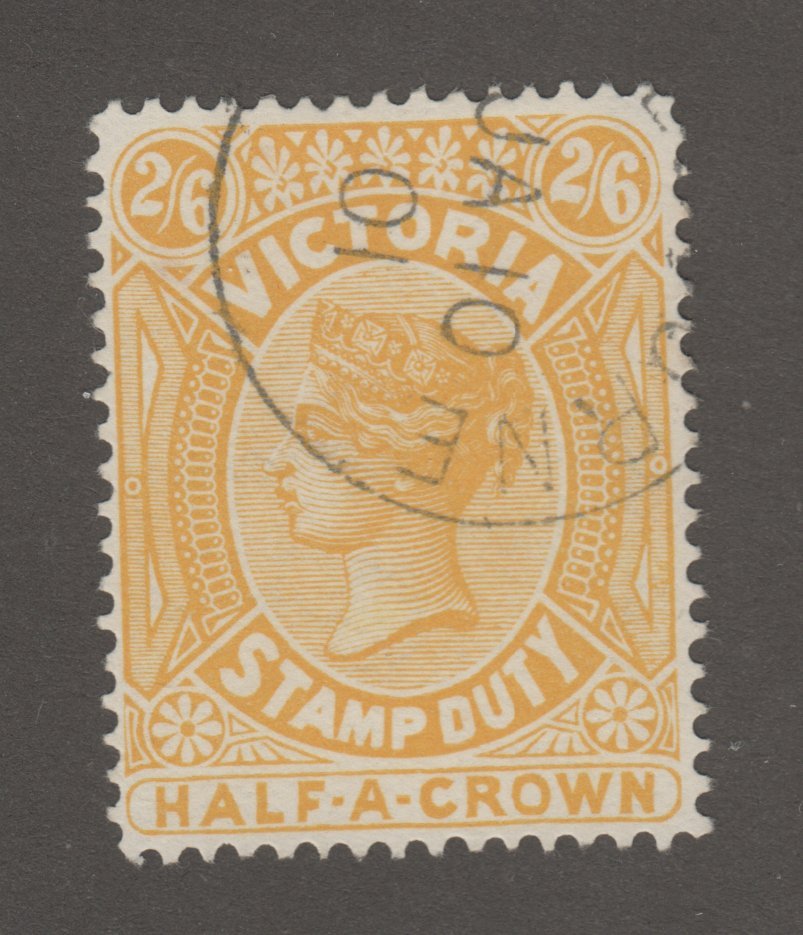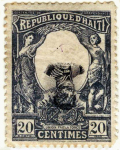
Discussion - Member to Member Sales - Research Center

Discussion - Member to Member Sales - Research Center



Login to Like
this post

02:59:53pm
Those look like they are from post cards.
Can't help you with values bit you have a fantastic cancel on your Liege one. Very nice.

Login to Like
this post
That makes sense as one has writing on the back. Does anyone have dates for post cards?
Karen

Login to Like
this post

04:55:02pm
Your Liege card was posted either April 19th, 1901 or 13th - I can't make out the number clearly on the day. I'd need to be on my computer. You can easily match the post card circulation time with the stamp by going back to the issue days of the matching stamp design in the catalogue.
I don't know if this helps answer your question?

Login to Like
this post
The question I have on the two items is whether the postal cards came with and without the 'No Sunday delivery tag?

Login to Like
this post
Did they put tags on post cards as well as stamps? I only have the cut out so I would say that there is not a tag if I understand what you are asking.

Login to Like
this post
The red oval shows the "tag" on the stamp:

These tags on stamps (and on postal cards*) read "NE PAS LIVRER LE DIMANCHE" in French, and "NET BESTELLEN OP ZONDAG" in Dutch, translated to the English "Don't deliver on Sunday". Christians who believed the Biblical injunction to avoid working on Sunday could leave the labels on the stamps and the post office would presumably follow those instructions. If the sender didn't care when his letters were delivered could tear the labels off the stamps before sticking them on an envelope, and, I assume, the sender of a postal card could just X out the label.
Bob
* Postcards are commercial items normally illustrated with a picture or text on one side, with room for a stamp, address, and message on the other side. Postal cards are issued by post offices and are considered postal stationery, and don't usually have illustrations of any sort on them. They bear a stamp imprint in the upper-right corner, like your Belgium postal card stamps.

Login to Like
this post
Thanks Bob, I was wondering if that was the tag below buy was uncertain since it was a post card and not a stamp.
I am still learning a lot about stamps and really appreciate your post.
Karen

Login to Like
this post

10:23:43am
There are many examples of Belgian postal stationery here:
http://www.buckacover.com/covers/search.php?code=belgsta
Roy

Login to Like
this post
You're welcome, Karen. Ask all of the questions you want. Philately is such a huge field that there is no such thing as a collector who is expert in all fields. I've been collecting stamps for something like 45 years, and learn something new about the hobby almost every day. And it's not all that hard to become an "expert" in something that hardly anyone else knows anything about.
There are some general "truths" that beginning collectors should be aware of:
• Most stamps are common. Just because you haven't seen a particular stamp before doesn't mean that its necessarily rare, or even uncommon. I once had trouble finding a particular stamp for my Canada collection, until I went to a stamp shop where the dealer told me to pick one out of a shoebox he had that was full of copies of that stamp.
• Very few stamps are rare, and most of us can't afford most of them. However, a great many are very hard to find because relatively few of them were printed. The best way to add hard-to-find stamps to your collection is to learn everything you can about the types of stamps that most interest you.
• Collecting stamps is possibly one of the worst investments you can make, assuming you want to add to your wealth. If you ever decide to sell your collection, you'll be fortunate to sell it for more than 20% of its catalogue value.
• Collecting stamps is without question one of the most educational hobbies ever. It can literally take you where no man or woman has gone before. When I mounted my first exhibit, about the wartime economy of Great Britain, a very experienced judge told me that he had never seen an exhibit that approached the war in the way I did. When I started working on the exhibit, I knew almost nothing about the economy of Great Britain during the war. Now I could write a book about it, or teach a class.
Good luck to you. We hope you stick around!

1 Member
likes this post.
Login to Like.

Here are a couple of old imperf stamps. Could anyone tell me about these and their value?


Login to Like
this post
A Service Dog gives a person with a disability independence. Never approach, distract or pet a working dog, especially when (s)he is in harness. Never be afraid to ask questions to the handler (parent).
01 Nov 2016
02:59:53pm
re: Belgium imperf
Those look like they are from post cards.
Can't help you with values bit you have a fantastic cancel on your Liege one. Very nice.

Login to Like
this post

re: Belgium imperf
That makes sense as one has writing on the back. Does anyone have dates for post cards?
Karen

Login to Like
this post
A Service Dog gives a person with a disability independence. Never approach, distract or pet a working dog, especially when (s)he is in harness. Never be afraid to ask questions to the handler (parent).
01 Nov 2016
04:55:02pm
re: Belgium imperf
Your Liege card was posted either April 19th, 1901 or 13th - I can't make out the number clearly on the day. I'd need to be on my computer. You can easily match the post card circulation time with the stamp by going back to the issue days of the matching stamp design in the catalogue.
I don't know if this helps answer your question?

Login to Like
this post

re: Belgium imperf
The question I have on the two items is whether the postal cards came with and without the 'No Sunday delivery tag?

Login to Like
this post

re: Belgium imperf
Did they put tags on post cards as well as stamps? I only have the cut out so I would say that there is not a tag if I understand what you are asking.

Login to Like
this post

re: Belgium imperf
The red oval shows the "tag" on the stamp:

These tags on stamps (and on postal cards*) read "NE PAS LIVRER LE DIMANCHE" in French, and "NET BESTELLEN OP ZONDAG" in Dutch, translated to the English "Don't deliver on Sunday". Christians who believed the Biblical injunction to avoid working on Sunday could leave the labels on the stamps and the post office would presumably follow those instructions. If the sender didn't care when his letters were delivered could tear the labels off the stamps before sticking them on an envelope, and, I assume, the sender of a postal card could just X out the label.
Bob
* Postcards are commercial items normally illustrated with a picture or text on one side, with room for a stamp, address, and message on the other side. Postal cards are issued by post offices and are considered postal stationery, and don't usually have illustrations of any sort on them. They bear a stamp imprint in the upper-right corner, like your Belgium postal card stamps.

Login to Like
this post

re: Belgium imperf
Thanks Bob, I was wondering if that was the tag below buy was uncertain since it was a post card and not a stamp.
I am still learning a lot about stamps and really appreciate your post.
Karen

Login to Like
this post
BuckaCover.com - 80,000 covers priced 60c to $1.50 - Easy browsing 500 categories
02 Nov 2016
10:23:43am
re: Belgium imperf
There are many examples of Belgian postal stationery here:
http://www.buckacover.com/covers/search.php?code=belgsta
Roy

Login to Like
this post

re: Belgium imperf
You're welcome, Karen. Ask all of the questions you want. Philately is such a huge field that there is no such thing as a collector who is expert in all fields. I've been collecting stamps for something like 45 years, and learn something new about the hobby almost every day. And it's not all that hard to become an "expert" in something that hardly anyone else knows anything about.
There are some general "truths" that beginning collectors should be aware of:
• Most stamps are common. Just because you haven't seen a particular stamp before doesn't mean that its necessarily rare, or even uncommon. I once had trouble finding a particular stamp for my Canada collection, until I went to a stamp shop where the dealer told me to pick one out of a shoebox he had that was full of copies of that stamp.
• Very few stamps are rare, and most of us can't afford most of them. However, a great many are very hard to find because relatively few of them were printed. The best way to add hard-to-find stamps to your collection is to learn everything you can about the types of stamps that most interest you.
• Collecting stamps is possibly one of the worst investments you can make, assuming you want to add to your wealth. If you ever decide to sell your collection, you'll be fortunate to sell it for more than 20% of its catalogue value.
• Collecting stamps is without question one of the most educational hobbies ever. It can literally take you where no man or woman has gone before. When I mounted my first exhibit, about the wartime economy of Great Britain, a very experienced judge told me that he had never seen an exhibit that approached the war in the way I did. When I started working on the exhibit, I knew almost nothing about the economy of Great Britain during the war. Now I could write a book about it, or teach a class.
Good luck to you. We hope you stick around!

1 Member
likes this post.
Login to Like.

